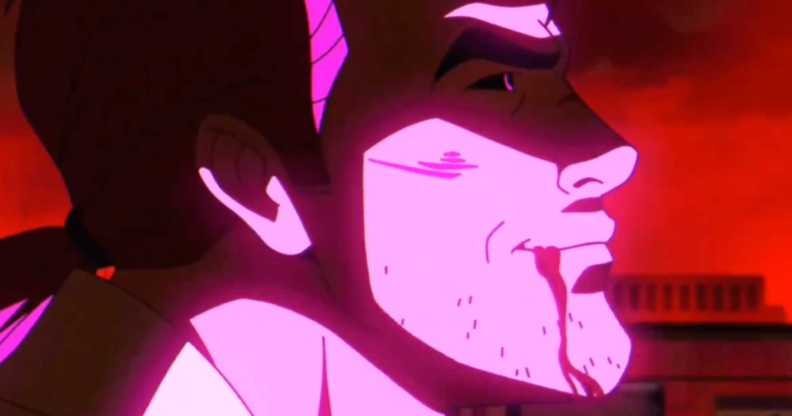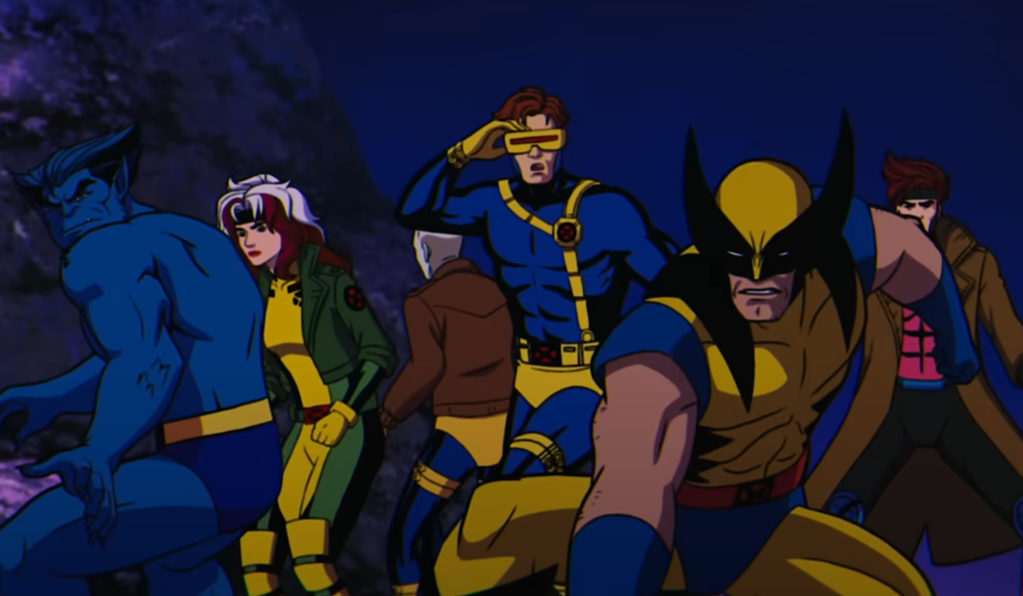X-Men ’97 ex-showrunner says Pulse shooting helped inspire tragic events of episode five

X-Men ’97 ex-showrunner Beau DeMayo has broken his silence to explain the animated show’s fifth episode. (Disney/ Marvel)
Former X-Men ’97 showrunner Beau DeMayo has broken his silence to explain how the Pulse shooting helped inspire the ending episode five of the series.
Warning: Spoilers for the X-Men ’97 episode five follow.
While the animated revival of Marvel’s band of mutants has been well-received so far, episode five, “Remember It”, hit viewers hard.
The episode follows Magneto, Rogue and Gambit as they journey to the mutant oasis of Genosha. Things go badly, however, when a group of Sentinels (mutant hunters) arrive in the peaceful country and slaughter dozens of its citizens.
The storyline ends with Gambit sacrificing himself to save Rogue, with many other key characters also presumed dead.
Taking to X to speak about X-Men ’97 for the first time since he departed the project just weeks before it aired, DeMayo explained how events such as the deadly 2016 Pulse Nightclub shooting in Orlando, Florida, inspired his writing.
“I’ll momentarily break silence,” he wrote in a lengthy statement, his first since early March.
“Episode Five was the centrepiece of my pitch to Marvel in November 2020, the idea being to have the X-Men mirror the journey that any of us who grew up on the original show have experienced since being kids in the 90s.
“The world was a seemingly safer place for us, where a character like Storm would comment on how skin-based racism was ‘quaint’ in ‘One Man’s Worth’ [the season four opener for the original X-Men animated series].
“For the most part, to our young minds, the world was a simple place of right and wrong, where questions about identity and social justice had relatively clear-cut answers.”
After writing that his world view shifted after the 11 September al-Qaeda terror attacks in 2001, DeMayo said that the further targeting of marginalised communities – including the Pulse nightclub shooting in which Omar Mateen shot and killed 49 people and wounded dozens more – inspired the fictional attack on Genosha.
“If events like 9/11, Tulsa, Charlottesville, or Pulse nightclub teach us anything, it’s that too many stories are often cut far too short. I partied at Pulse. It was my club. I have so many great memories of its awesome white lounge. It was, like Genosha, a safe space for me, and everyone like me, to dance and laugh and be free.
“I thought about this a lot when crafting this season and this episode, and how the gay community in Orlando rose to heal from that event.”
The X-Men have long been an allegory for the queer community, something DeMayo had in mind when comparing Genosha and Pulse.

“Like many of us who grew up on the [original] cartoon, the X-Men have now been hit hard by the realities of an adult and unsafe world,” he added.
“Life’s happened to them, and they, like we did, will have to decide which parts of themselves they will cling to and which parts they’ll let go of in order to do what they’ve been telling humanity to do: face an uncertain future they never saw coming.
“As Trask told Cyclops in the premiere: ‘You have no idea what it’s like to be left behind by the future’. Now the X-Men do, and, like each of us, they’ll have to weigh whether this is a time for social justice or – as Magneto preached at his trial – a time for social healing.”
Speaking about DeMayo’s departure, Marvel executive Brad Winderbaum told EW: “I can’t talk about the details but I can say that Beau had real respect and passion for these characters and wrote what I think are excellent scripts that the rest of the team were able to draw inspiration from, [to] build this amazing show.”
X-Men ’97 is streaming on Disney+ now.

